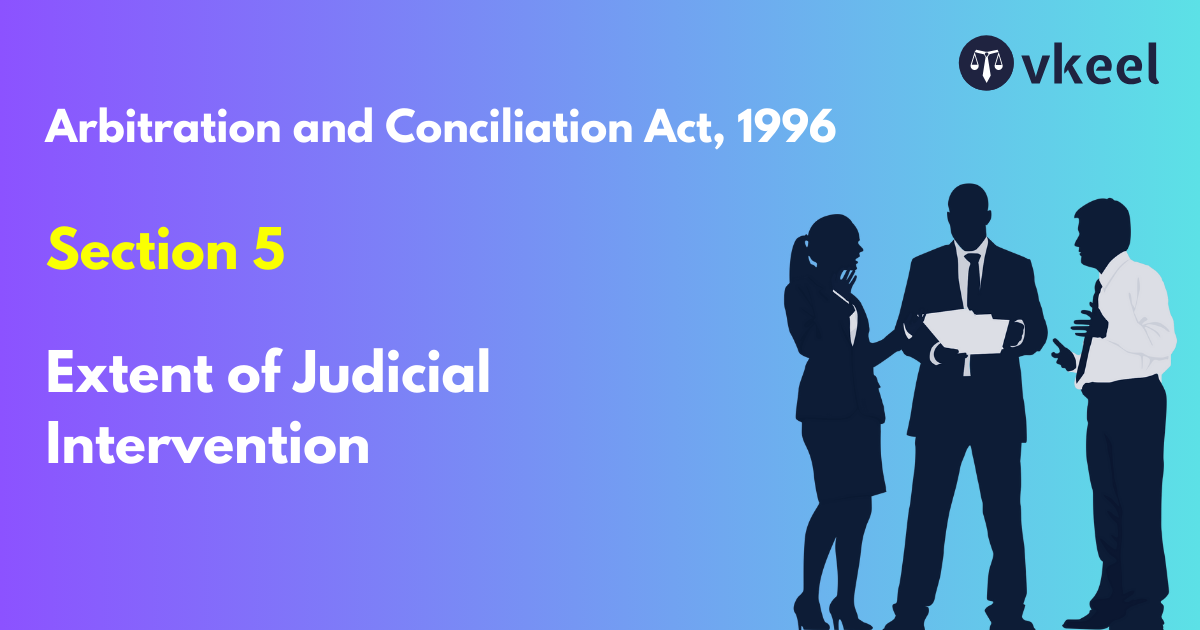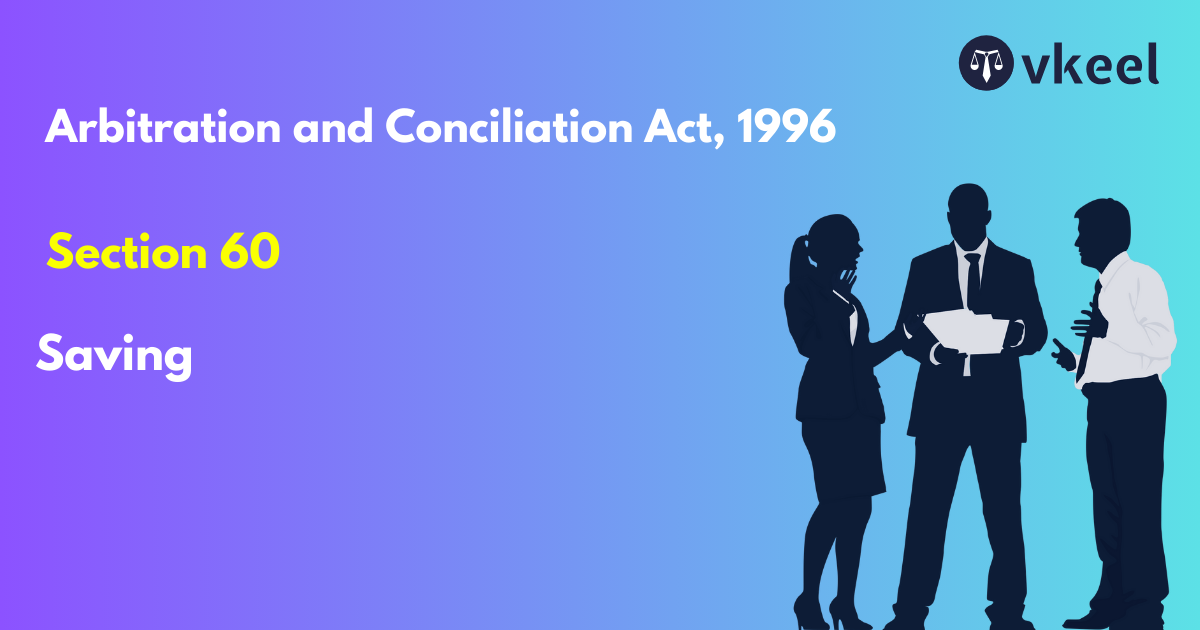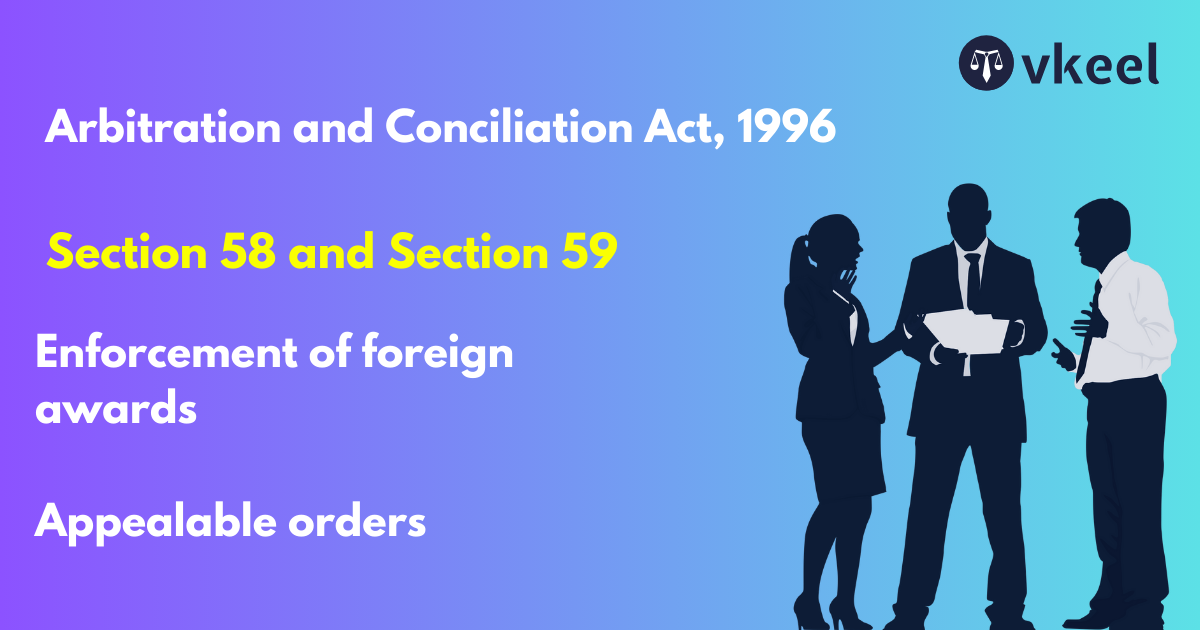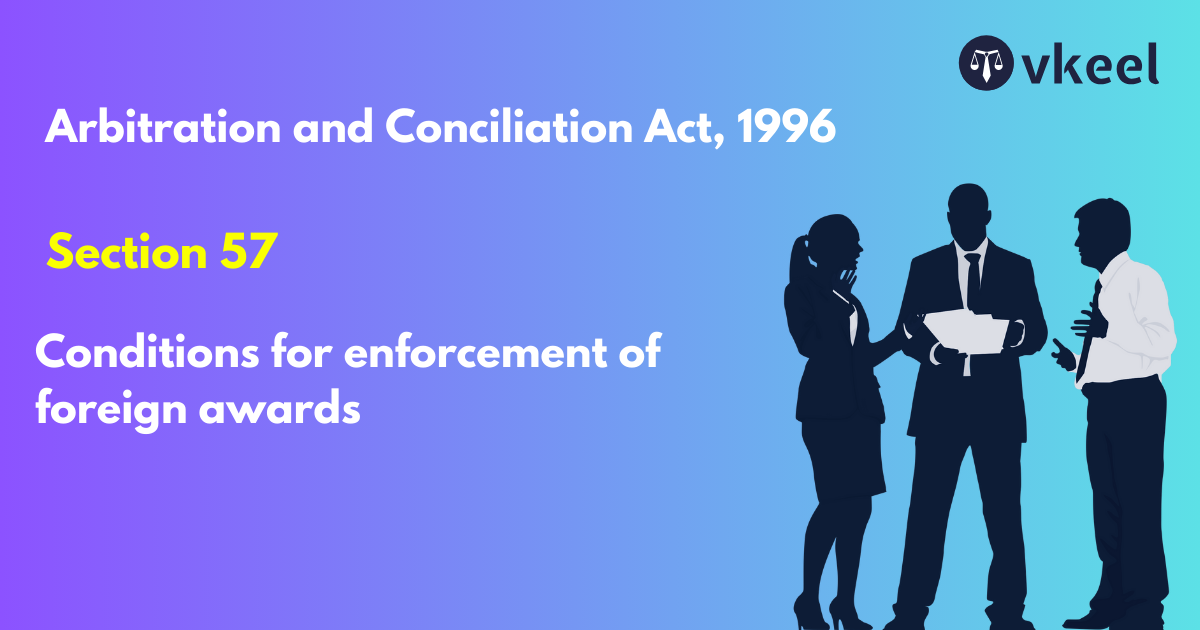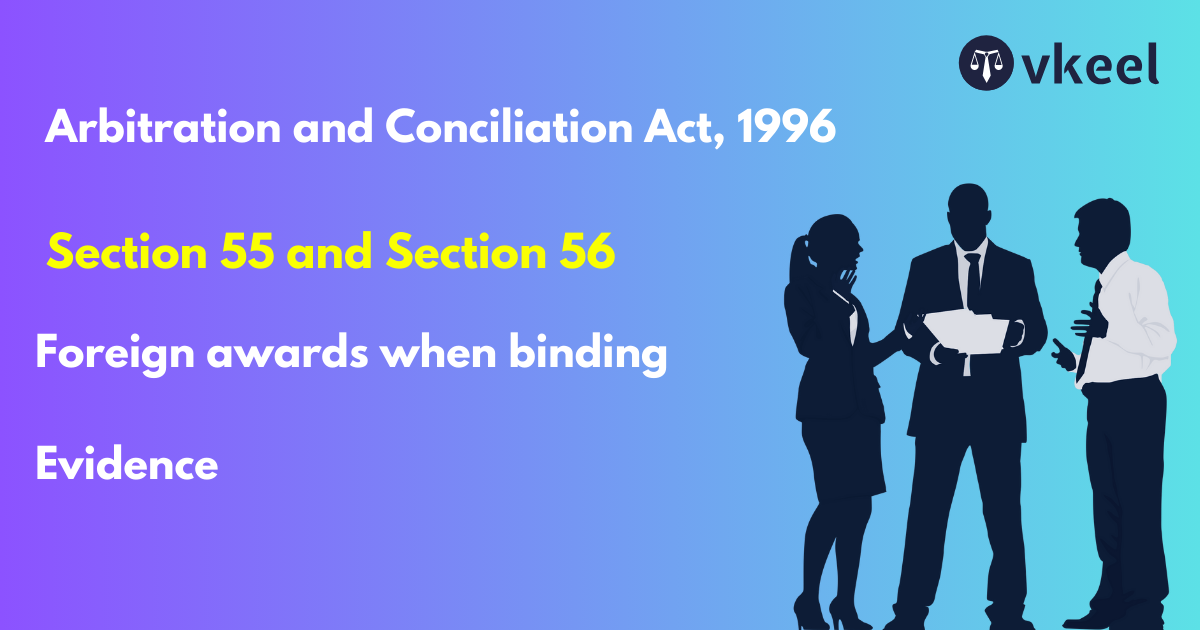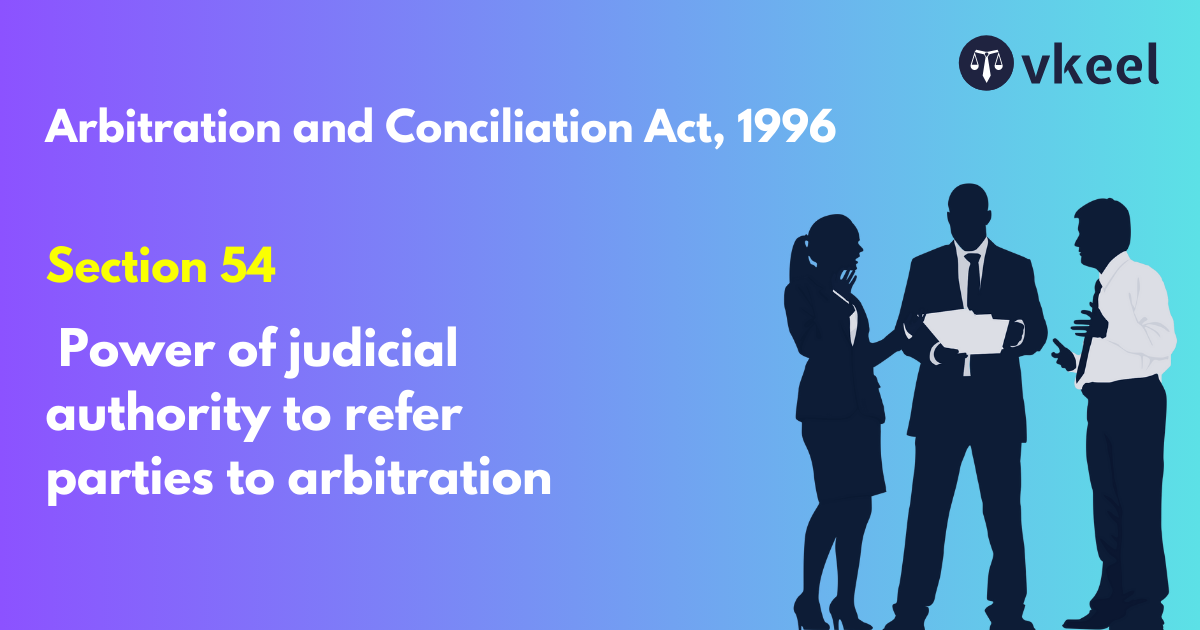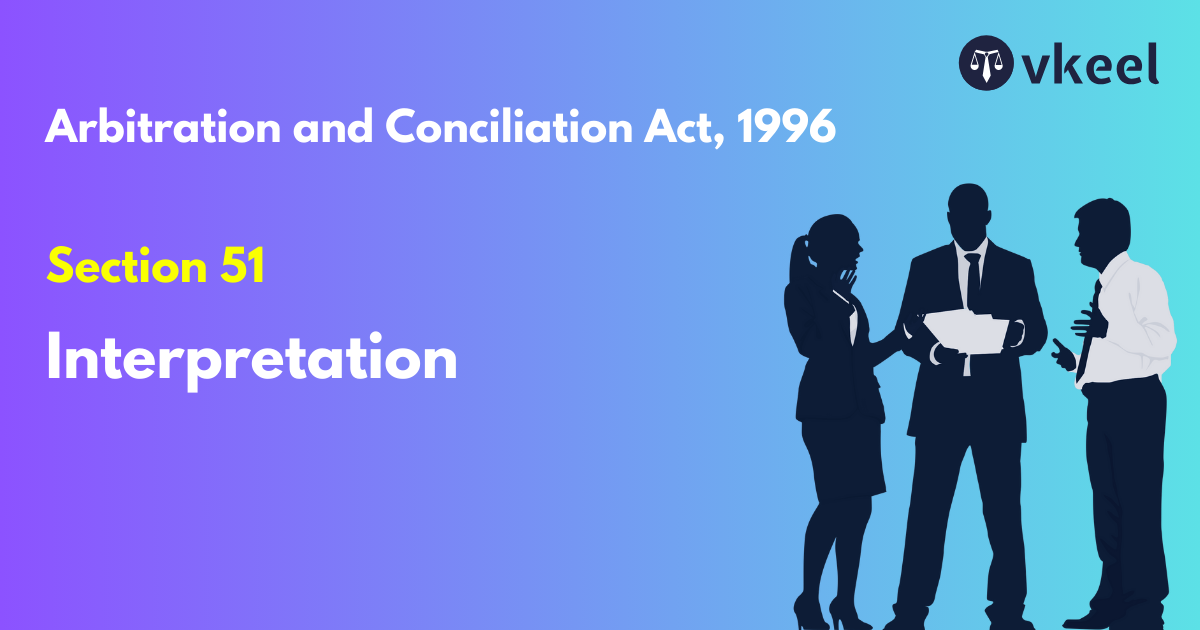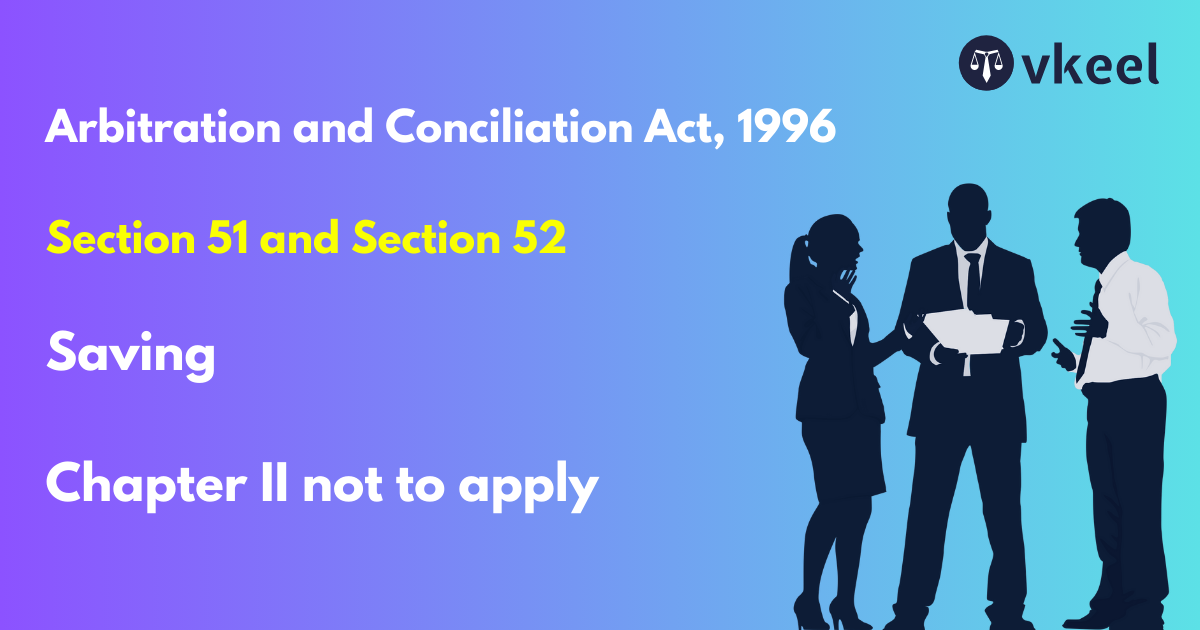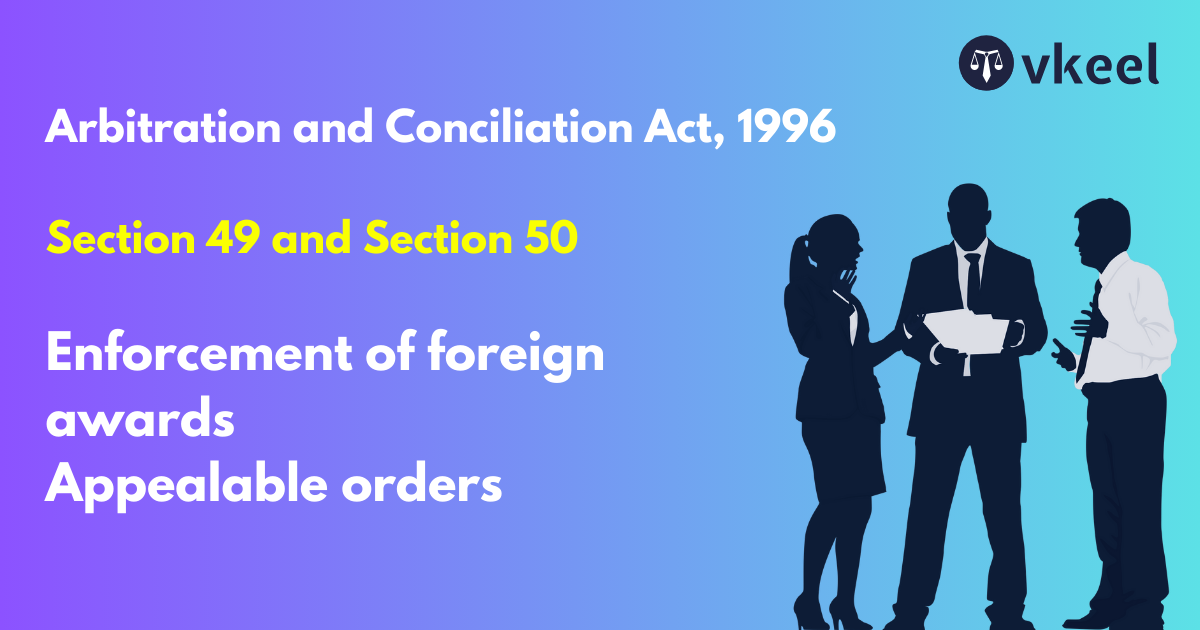Section 5: Arbitration and Conciliation Act, 1996
By Nivedita Dhiman
Table of Contents
Introduction
The Arbitration and Conciliation Act provides speedy resolution by the whole process of Arbitration and achieves its objectives. Section 5 of the mentioned Act puts a complete bar on the intervention of the courts in those matters where there exists an arbitration clause.
It is important to state that before coming into force of the Act, the Arbitration Act, 1940 was the law in force relating to arbitration. This Act is more rigid and indisputable insofar as the bar to the jurisdiction of any individual authority is concerned.
Under Section 5, no judicial authority shall intervene in the proceeding except when so provided in the Act. This Act limits the extent to which courts can interfere in the arbitration
proceedings.
It displays the fundamental principle of minimal judicial interference which means that the courts are not allowed to interfere unless the Arbitration and Conciliation Act allows it. The Arbitration is promoted as an efficient and consistent method of dispute resolution.
It makes sure that the parties who have agreed to the arbitration are not hindered by the prolonged
litigation in courts thereby making the process speedy and efficient.
Section 5
Extent of judicial intervention.
Notwithstanding anything contained in any other law for the time being in force, in matters governed by this Part, no judicial authority shall intervene except where so provided in this Part.
Restricted Judicial Intervention
Arbitration is an effective and alternative mode of dispute resolution mechanism. The Arbitration method has evolved over the period of time to help the parties to resolve their disputes through the mentioned process and elaborate provisions to fulfil the needs of speedy disposal of disputes.
If a dispute awaits resolution for years, then the court would be justified in fixing a time limit while making the appointment of arbitrator within which the proceedings must come to an
end.
The extent of judicial intervention is confined only to the proceedings which are pending
before the arbitral tribunal to the extent so provided under the Act. Intervention in excess in
the arbitral proceedings is liable to render the object and facilitating the arbitration as an
effective form of dispute resolution. The role of the court when enters into the commercial
disputes is to facilitate an effective dispute resolution.
Landmark Judgements
Braham Dutt Shukla v Ashok Leyland Finance, 2004
When a suit for declaration and injunction was filed pertaining to a hire purchase agreement containing an arbitration clause, it was held that if such disputes are allowed to be entertained by the civil court, the very purpose of the act would be frustrated since the entire scheme of the act provides for challenge to an arbitral award only by taking recourse to section 34 of the act and not otherwise.
Roshan Lal Gupta v Parasram Holdings Pvt Ltd, 2009
A suit for declaration and permanent injunction contending that the arbitration clause was forged, fabricated and hence null and void was filed. It was held that a suit is not maintainable in view of the provisions of this section and the discretion to grant declaration cannot be exercised to negotiate the purport of 1996 Act.
Conclusion
Section 5 of the Arbitration and Conciliation Act, 1996 acts as a pillar for restricting judicial intervention in arbitration proceedings.
It highlights the importance of upholding the autonomy of the process of arbitration and ensuring that the disputes are resolved under the legal framework agreed upon by the parties without the involvement of the court hence maintaining the integrity and effectiveness of
arbitration.
Disclaimer:
The information provided in the article is for general informational purposes only, and is not intended to constitute legal advice or to be relied upon as a substitute for legal advice. Furthermore, any information contained in the article is not guaranteed to be current, complete or accurate. If you require legal advice or representation, you should contact an attorney or law firm directly. We are not responsible for any damages resulting from any reliance on the content of this website.

